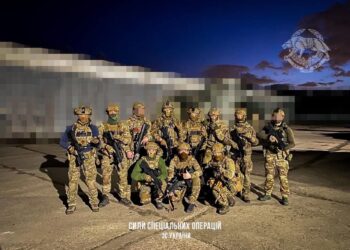The United States Department of Defense has announced the imminent deployment of approximately 1,000 American troops tasked with constructing a temporary seaport off the coast of Gaza. The move is designed to facilitate the delivery of humanitarian aid directly to the population of the war-torn region, which currently faces near-famine conditions. The operation, utilizing a Joint Logistics Over-the-Shore (JLOTS) system, will involve the creation of a floating pier and a causeway extending about 1,800 feet into the Mediterranean Sea. This infrastructure will enable commercial vessels to dock and offload aid, which will then be transported into Gaza by smaller vessels and vehicles.
Air Force Maj. Gen. Pat Ryder, the Pentagon’s top spokesperson, detailed the logistics of the operation, emphasizing that American forces would not enter Gaza at any time. The initiative aligns with President Joe Biden’s directives, issued in the context of his State of the Union address, calling for increased efforts to protect civilians and ensure the delivery of humanitarian aid amidst the conflict.
The humanitarian situation in Gaza has been exacerbated by the blockade and tight controls over aid distribution, with accusations against Hamas of diverting humanitarian goods. In response to these challenges, the United States has also begun airdropping aid into Gaza, complementing efforts to press Israel to allow more humanitarian aid through land crossings. The construction of the temporary seaport is expected to significantly enhance the capacity for delivering essential supplies to Gaza’s population, demonstrating a creative approach to overcoming logistical and security challenges in aid delivery within a conflict zone.
The deployment of this JLOTS operation involves careful planning and coordination, with security measures to protect American forces and ensure the aid reaches its intended recipients without interference. This initiative highlights the complex dynamics of delivering humanitarian aid in conflict areas and the innovative solutions employed by military and humanitarian agencies to address critical needs.
Expanded Coverage:







